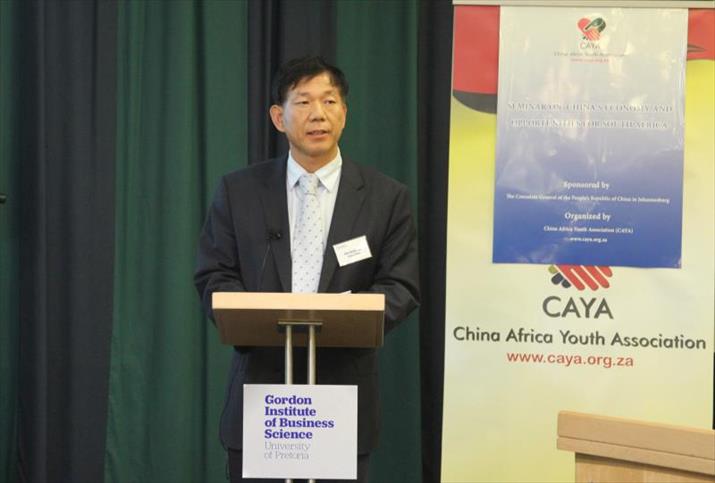|
||||||||||
| Home Nation World Business Opinion Lifestyle ChinAfrica Multimedia Columnists Documents Special Reports |
|
||||||||||
| Home Nation World Business Opinion Lifestyle ChinAfrica Multimedia Columnists Documents Special Reports |
| The Latest Headlines |
| Accelerating RMB Internationalization in Africa |
| RMB used more widely in trade and investment between China and Africa |
| By Lu Anqi | Web Exclusive ·2016-09-07 |

With the rapid development of China-Africa trade and economic cooperation and more Chinese enterprises and investors entering Africa, China's renmimbi (RMB) currency is now used more widely in trade and investment between China and Africa.
The acceleration of RMB use in South Africa shows the strong support and cooperation of the two governments, he said.
In 2015 the People's Bank of China (PBOC) signed a three-year bilateral swap agreement with the South African Reserve Bank (SARB) for the exchange of currencies up to 30 billion yuan ($4.5 billion) between the two central banks. The South African Reserve Bank has included RMB into its foreign currency reserve with a weight of 13 percent, making it the third most weighted currency in the basket.
On July 8, 2015, the BOC Johannesburg Branch was authorized by the central banks of China and South Africa to serve as the clearing bank for RMB business in South Africa, becoming the first RMB clearing bank in Africa.
In June 2016, efforts from the PBOC and SARB saw the China Foreign Exchange Trade System (CFETS) authorizing direct trading between the RMB and Rand on China's interbank foreign exchange market. The move aims to lower currency conversion costs for relevant entities, facilitate the use of the currencies in bilateral trade and investment, and promote financial cooperation.
On July 26, 2016, the SARB executed the first direct RMB bond deal with the BOC as its direct counterparty in the China Interbank Bond Market. The National Treasury of South Africa has shown considerable interest in issuing RMB bonds in either onshore market or offshore markets.
Gao said that besides South Africa, many African countries are keen to diversify their foreign currency reserves to mitigate the international monetary risks. African governments and central banks are positive about the use of RMB.
"Among the 23 countries that claimed to be holding RMB as a reserve currency, there are six in Africa, namely, Angola, Nigeria, South Africa, Kenya, Ghana and Tanzania, which reflects the confidence of African countries in RMB," Gao said.
Gao said that Bank of Namibia announced that 10 percent of reserves would be held in RMB. In April 2016, it delivered its intention to invest in RMB bonds in the China Interbank Bond Market, and agreed to open a special investment account with the PBOC Shanghai Branch.
He also revealed that Angola has signed a monetary agreement with China which makes RMB the second legal tender in the country.
Gao said that the BOC Johannesburg Branch is the RMB clearing bank in South Africa and the main clearing channel in Africa. In 2015, the RMB payments of BOC Johannesburg Branch reached 89.7 billion yuan ($13.5 billion), accounting for 61.2 percent of the total in South Africa. As of June 2016, 68 African Financial Institutions have opened RMB clearing accounts with the PBOC, including a number of central banks.
On June 20 this year, the BOC conducted the first direct trading between Rand and RMB. The South African Reserve Bank approved the BOC as counterparty broker whereby the SARB can buy and sell bonds directly with the BOC.
China's Economy and Opportunities for South Africa, a seminar held at the Gordon Institute of Business Science (GIBS), University of Pretoria, was sponsored by the Chinese Consulate General in Johannesburg and organized by the China Africa Youth Association. Major panelists at the seminar include Chinese senior economist Gao Jian, GIBS scholar Matthew Birtch and Senior Executive Vice President of BOC Johannesburg Gao Desheng.
|
||
| About Us | Contact Us | Advertise with Us | Subscribe |
| Copyright Beijing Review All rights reserved 京ICP备08005356号-5 京公网安备110102005860号 |